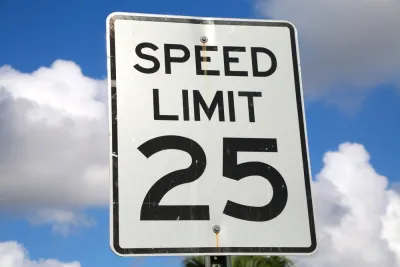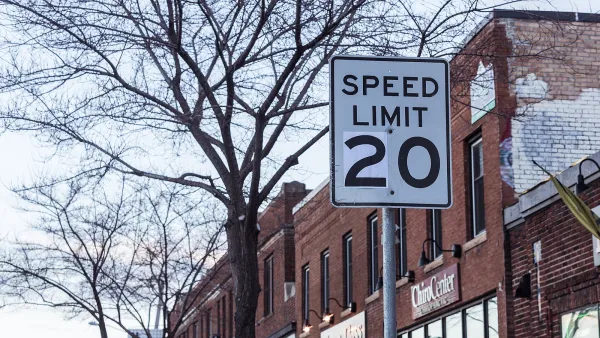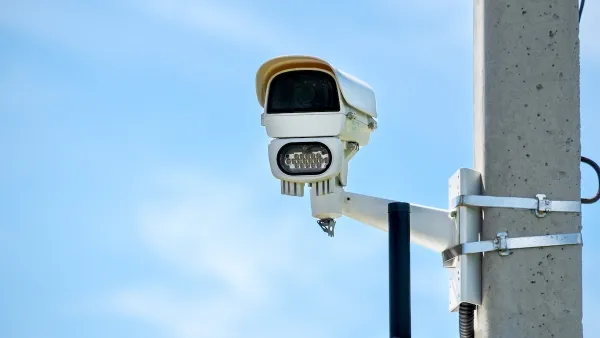A new law would allow cities to lower speed limits without going through an onerous state approval process.

A new Oregon law could let cities set their own speed limits on some roads, bypassing the long and often unsuccessful process by which cities have had to apply for lower speed limits until now.
Kea Wilson of Streetsblog reports on the proposed law, which would allow cities to more quickly adjust speed limits on dangerous roads and respond to community concerns. The law would not apply to interstate freeways or state-controlled roads, and would require cities to prove they can provide meaningful recommendations for new speeds.
A parallel proposal would improve safety on state-controlled roads by changing the calculation for speed limits, which, in most U.S. cities, is dictated by the “85th percentile rule,” setting the speed limit at the average speed that 85 percent of drivers travel. “Now, many Oregon roads will be subject to a significantly safer 50th percentile rule, wherein the slowest half of drivers on the road will set the standard,” along with road conditions and adjacent businesses and developments.
According to Wilson, Portland is already engaged in an effort to reduce speed limits on many of its roads. “As part of a separate effort, the city already won the right to slow to 20 miles per hour in 2018, and it’s continuing to redesign its roads to reinforce those limits as fast as possible.”
FULL STORY: Most Cities Can’t Set Their Own Speed Limits — But Maybe They Should

Analysis: Cybertruck Fatality Rate Far Exceeds That of Ford Pinto
The Tesla Cybertruck was recalled seven times last year.

National Parks Layoffs Will Cause Communities to Lose Billions
Thousands of essential park workers were laid off this week, just before the busy spring break season.

Retro-silient?: America’s First “Eco-burb,” The Woodlands Turns 50
A master-planned community north of Houston offers lessons on green infrastructure and resilient design, but falls short of its founder’s lofty affordability and walkability goals.

Test News Post 1
This is a summary

Analysis: Cybertruck Fatality Rate Far Exceeds That of Ford Pinto
The Tesla Cybertruck was recalled seven times last year.

Test News Headline 46
Test for the image on the front page.
Urban Design for Planners 1: Software Tools
This six-course series explores essential urban design concepts using open source software and equips planners with the tools they need to participate fully in the urban design process.
Planning for Universal Design
Learn the tools for implementing Universal Design in planning regulations.
EMC Planning Group, Inc.
Planetizen
Planetizen
Mpact (formerly Rail~Volution)
Great Falls Development Authority, Inc.
HUDs Office of Policy Development and Research
NYU Wagner Graduate School of Public Service




























